Powder fining agents are commonly used for preparation and clarification and protein stabilization of juices and wines. We offer a premium selection of powder fining agents, available in a range of sizes and quantities.
Powders
-
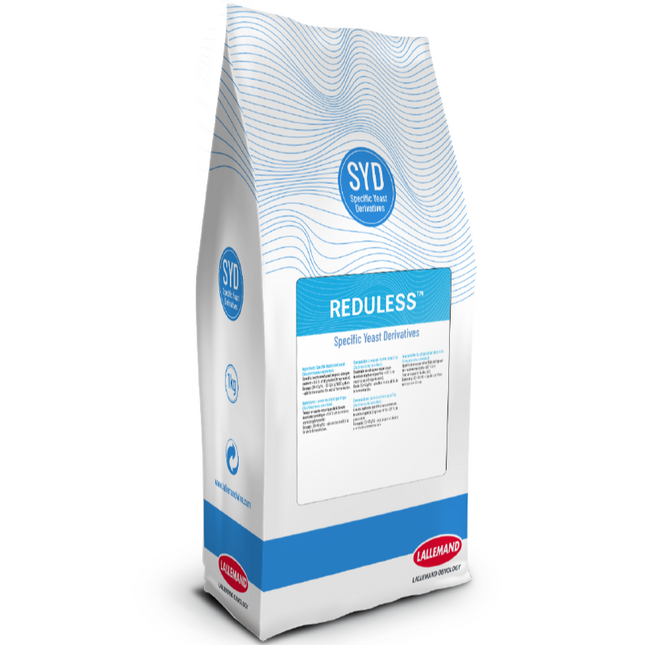
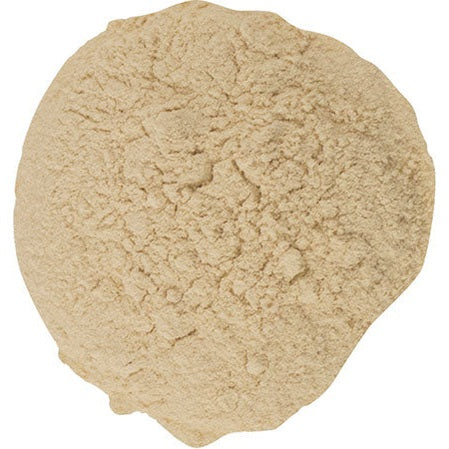
Lallemand Reduless | Inactivated Yeast with Copper | Fixes H2S Issues
Reduless is a new product from Lallemand that was designed to correct negative VSCs (Voltatile Sulfur Compounds) such as H2S (hydrogen sulfide, A.K.A. "rotten egg") and DMS (dimethyl sulfide, A.K.A. "cooked corn") defects in wine. Made from inactivated yeast that have been infused with copper using a proprietary process, Reduless is a much gentler H2S remedy on the wine than the traditional copper sulfate (CuSO4) treatment alone. If you have an H2S problem, then we recommend treating it with Reduless first. However, if the sulfur problem still remains after the Reduless treatment, then a bench trial with copper sulfate (CuSO4) is recommended. Note: The sooner you catch a sulfur problem the easier it is to deal with! To Use: Dissolve Reduless in 10 times it's weight in water and add immediately to the wine. Stir the wine gently to ensure a thorough homogenization. Rack or filter after 72 hours. Recommended Dosage: 0.4-0.6 g/gal. The maximum amount of copper that can be released into the wine using Reduless at the recommended dosage is 0.02 ppm.
$2.49
-
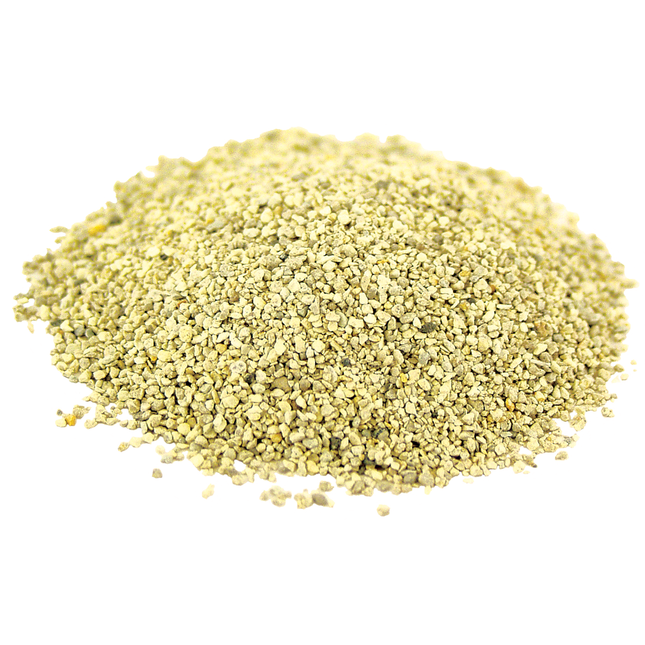
Bentonite - Volclay KWK Krystal Klear
Volclay KWK Krystal Klear Bentonite is a clay-like mineral with a negative charge that, similar to Sparkolloid, removes positively charged particles. It is most effective when the wine is at a warmer temperature, so we recommend using it for fining in late spring or early summer. It also works better at lower pH levels because proteins have a stronger positive charge in more acidic conditions. Generic Low-Level Fining for 5 Gallons: Blend 1/2 tsp (about 3g) of bentonite with 1/2 cup of hot water (140 to 200°F) in a blender for 1-2 minutes. Let the mixture sit for 60 minutes, then stir it well before adding it to the wine. Allow the wine to stand for 10-14 days before racking off. This method achieves a fining rate of 0.16g/L. Generic Mid-Level Fining: Follow the same steps as above but use 9 grams of bentonite and 3/4 cup of hot water. This method achieves a fining rate of 0.5g/L. More Scientific Approach: You can create a 5% bentonite stock solution and run bench trials to determine the lowest effective concentration for clearing the wine. Since fining is non-selective, it removes both undesirable particles like yeast and some desirable phenolic compounds. Therefore, it's best to use the lowest effective concentration. To make a 5% solution, dissolve 50 grams of bentonite in 850ml of hot water, mix thoroughly, and top up with water to a final volume of 1L. Set up trials with clear jars of equal volume, adding varying amounts of the solution to achieve addition rates between 0.3g/L and 2.0g/L. You’ll need to do some calculations to determine the right amount for your needs. Let the trials clear overnight. For more detailed technical information, consult BK653 - Monitoring the Winemaking Process from Grapes to Wine - Techniques & Concepts. Fining with Wine Kits: When using a wine kit made from concentrate, bentonite is typically added on the first day for a few reasons. It serves as a nucleation site for CO2 removal. The CO2 movement helps distribute the bentonite throughout the wine, allowing you to use less and achieve effective fining in a shorter time.
$1.99
-
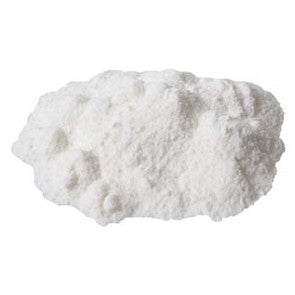
Polycacel
This product replaces our FIN73 - Polylact Polycacel can be used both curatively and preventatively against browning and pinking in white juice or in wine under long term storage conditions. Polycacel helps improve wine color and overall organoleptic properties. A is a blend of polyvinylpolypyrolidone (PVPP), soluble postassium casein and micropulverized cellulose. This specific blend allows for more complete action on phenolic compounds while avoiding over-stripping the wine. To Use: Slowly mix Polycacel in 20 times its weight in cold water (do not use juice or wine). Allow the mixture to stand for 2 hours. For enhanced homogenization, gradually add the Polycacel to the wine container while mixing. Dosages: To protect from oxidation, add to wine and mix thoroughly: 150-300 ppm To treat oxidized juice, add during cold settling: 300-700 ppm
$5.99
-
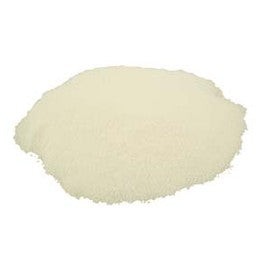
Polyclar VT (PVPP)
A non-soluble clarifier that removes both haze causing polyphenols as well as yeast cells. Mix 2 Tbls (or 5 g) with one cup of sanitized warm water and gently stir into five gallons beer. Let stand for a few days and rack off. Polyclar VT is a coarser grade of PVPP (140 micron particle size), optimized for addition to vessels, where faster settling is required. The larger particle size also facilitates settling of the stabilizer, allowing the majority of the product to be left behind with the lees at racking. A typical contact time of between 3 to 10 days is required, although there are no adverse effects from leaving Polyclar in contact with the wine for longer periods. For wine use .5 to 2.5 grams per gallon depending upon severity of problem and desired affect. A rough approximate of weight is 1 tsp = 1.1 grams. We highly recommend using a scale to weigh the product for an accurate dose. We do not recommend relying on these rough conversions for accurate dosage rates.
$5.99
-
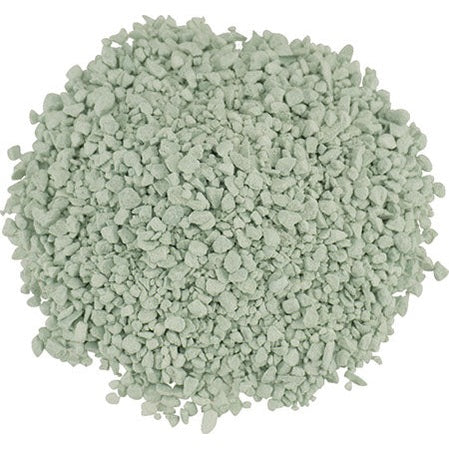
Kupzit® Hydrogen Sulfide Remover
Due to high demand, the 1 kg is currently out of stock. Be the first to receive your items by placing a pre-order today. We will automatically ship this item to you when we receive more in mid December. Kupzit® is an innovative copper citrate preparation developed for the elimination of sulfide off-flavors, particularly hydrogen sulfide odors in wine and fruit wine. Kupzit® contains 2 % copper citrate. For easy dosage and handling, it is coated onto a mineral carrier material, a particularly pure, high-quality granulated bentonite. Kupzit® reacts within minutes with sulphur compounds such as hydrogen sulfide and mercaptans. These compounds bind with Kupzit and then settle out to the bottom. Dosage and Application: Trials are absolutely recommended. Generally, the dosage amount is 5-20 g/100 L or .05-.2 g/L. Exceptionally bad cases may require up to twice as much. See the attached Manufacturer's instructions for further details along with information on dosage and storage.
$4.39
-
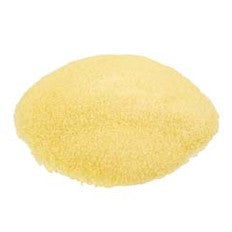
Gelatin Clarifier (Grade 1)
A heat soluble, commercial quallity extra no. 1 grade, powered Gelaitin. This is much higher quality Gelatin than you will find in most beer/winemaking shops. It is composed of high molecular weight mass proteins that carry a big positive charge. Prepare by mixing in warm water and then adding during a transfer or pump-over. The solution must be maintained at 95-104F (35-40C) when used. See below for different dosage rates for beer and wine. For Wine Gelatin will help to reduce cloudiness by removing colloidal substances. It has an overall tannin polishing effect, but still preserves the phenolic compounds responsible for structure (similar to fining with egg whites). Add at the rate of .2 to .35 grams per gallon. Maximum clarification and filter-ability achieved after one week. If you will be ageing the the wine, a second racking one week after the first racking is recommended. Do not leave gelatins in wine more than 30 days.
$4.49
-
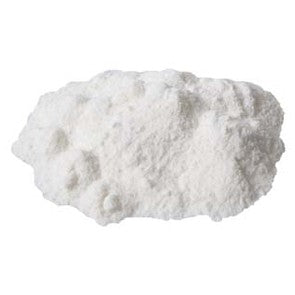
Cristalline Plus
This product is a direct replacement for our FIN74 - Ichtyocolle. Recommended for whites, roses and fruit wines, Cristaline Plus is a blend of isinglass (fish-derived protein) and citric acid stabilized with SO2. Cristaline Plus has a strong positive charge which makes it very effective at improving the clarity of a wine (even those that are made from botrytised grapes). As an added benefit, Cristaline Plus can help improve the filterability of a wine. Cristaline Plus is not sensitive to cold temperatures and may be slow to finish settling. The use of Gelocolle (FIN64) an hour after the addition of Cristaline Plus will help speed the settling process and create a more compact lees. To Use: Dissolve Cristaline Plus in 150-200 times its weight (75-100 mL) of clean, warm water (59-68 F/15-20 C) Let mixture swell for 3 hours If the solution is too viscous add additional warm water Add the solution quickly into the whole volume of wine to be treated while stirring and mix well to distribute the Cristaline Plus evenly throughout the wine Rack as soon as the lees are well settled (wait 72 hours before filtering or allow 8-10 days settling before racking) Dosage Range: 15-30ppm (mg/L)
$1.79
-
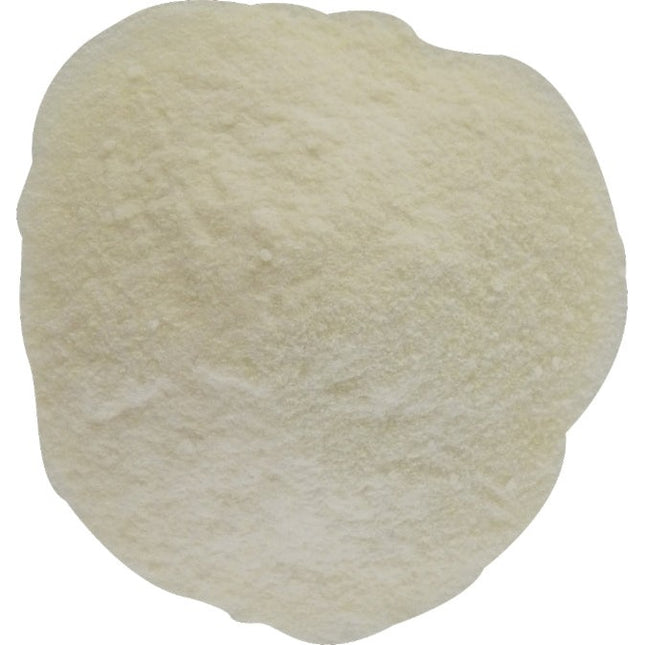
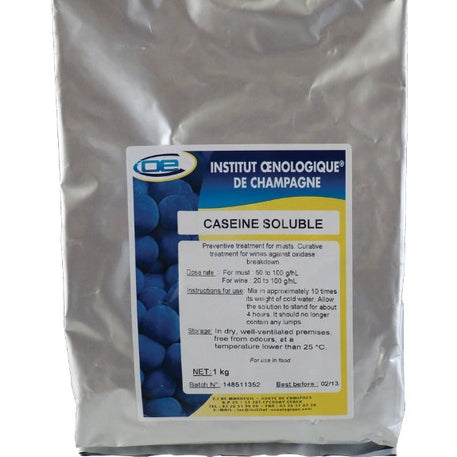
Caseinate de Potassium (Caseine Soluble)
Caseinate de Potassium, formally Caseine Soluble, is a concentrated, powdered form of Potassium Caseinate produced from milk. Helps eliminate oxidized phenolic (brown colored) and bitter compounds in white wines, rose wines, fruit wines, and meads. Caseinate de Potassium can be used preemptively in the must or as a curative step on finished wine. Recommended Dosage: In Juice: 1.9-3.8 g/gal (500-1000 ppm) In Wine: 0.8-3.8 g/gal (200-1000 ppm) Preparation For Use Add the pre-measured amount of Caseinate de Potassium to 10 times its weight of cold water (do not use juice or wine). Allow the solution to swell for 4 hours Stir to dissolve any lumps When completely dissolved, add the mixture slowly to the juice or wine while stirring continuously (for juice, add Caseinate de Potassium before settling). Once added, strongly stir the entire wine volume to get the Caseinate de Potassium to integrate with the wine. Once Caseinate de Potassium has been dissolved, use the preparation within 2 hours. Minimum contact is 2 days, maximum 15 days. The amount needed for your specific wine is best determined by a bench trial. A rough approximate of weight is 1 tsp = 2.3 grams. We highly recommend using a scale to weigh the product for an accurate dose. We do not recommend relying on these rough conversions for accurate dosage rates.
$7.99
-
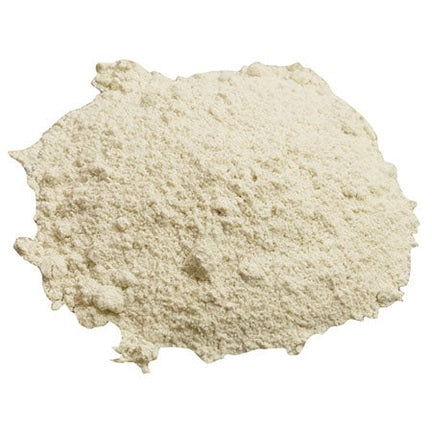
Bentolact S
Bentolact S is a proprietary IOC blend of soluble casein and bentonite. It is most effective when used early (during cold settling). This fining agent is formulated for the preventative treatment of must prone to oxidation. It will help prevent the formation of undesirable off-characters. Using this with whites, roses, and light fruit wines will help prevent any negative characters from forming as a result of oxidation during processing. Juice - Applied at a rate of 2.25 g / gal. Wine - Applied at a rate of 6 g / gal. Dissolve in 10 times its weight in cold water and mix vigorously to dissolve any clumps. Allow the mixture to stand for 3 hours. Add to the juice or wine during a pump-over or a good mixing. Depending upon the wine, a Bentolact S addition may take up to 7 days to settle. Please Note: For best results, Bentolact S should be mixed in the juice or wine during a pump-over or tank mixing.
$5.99











